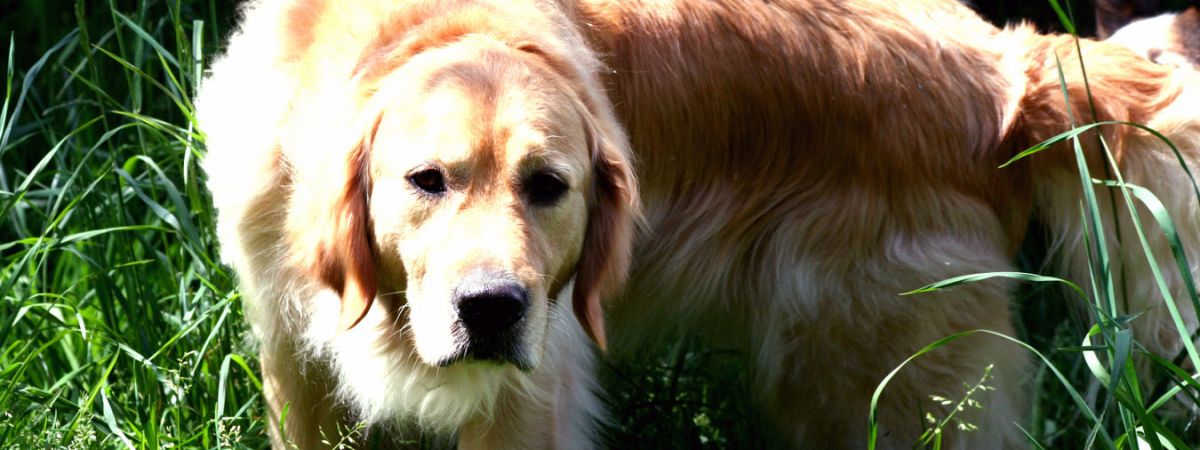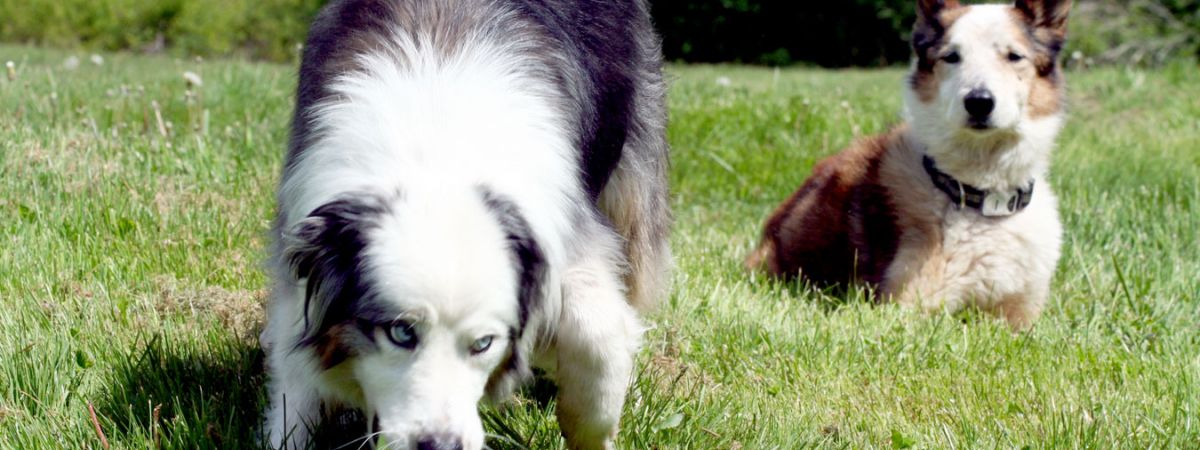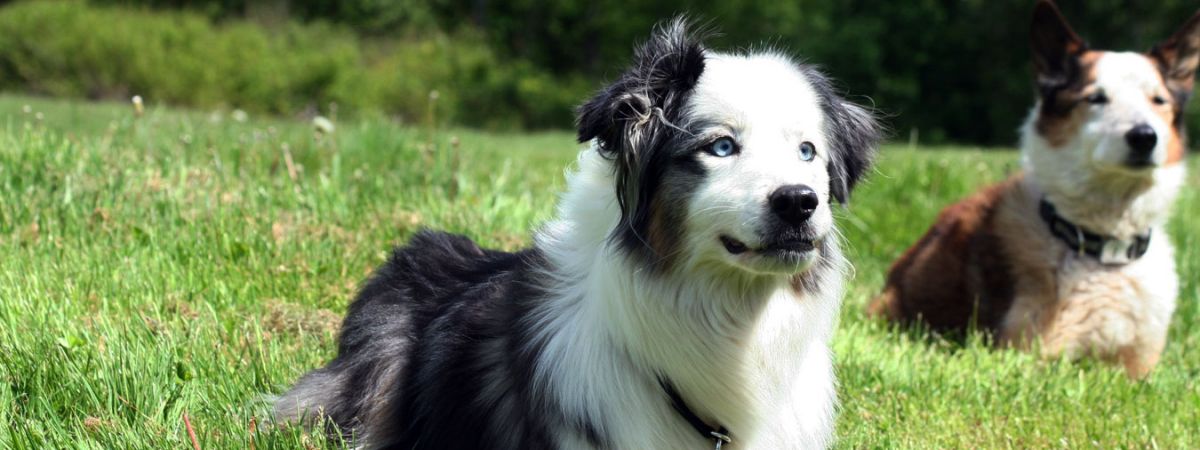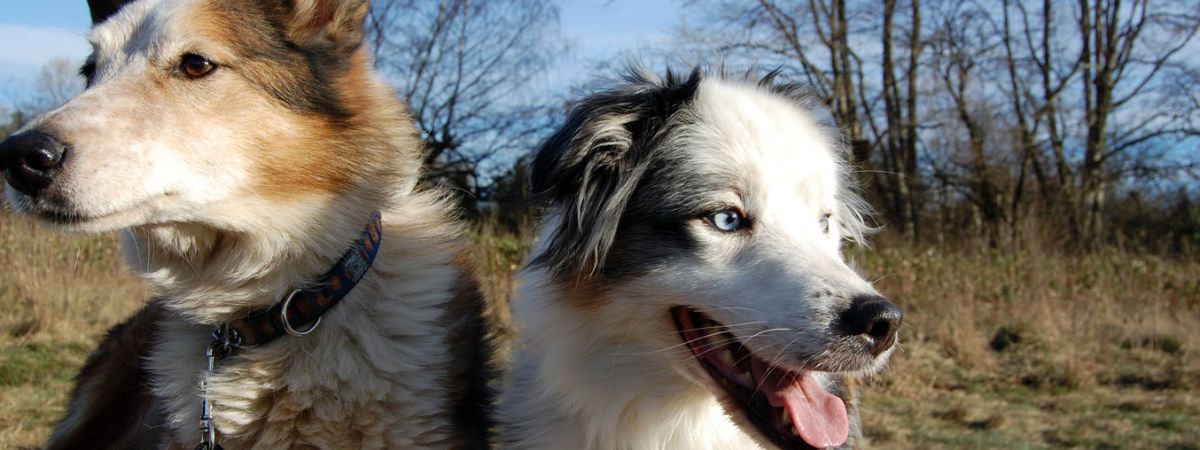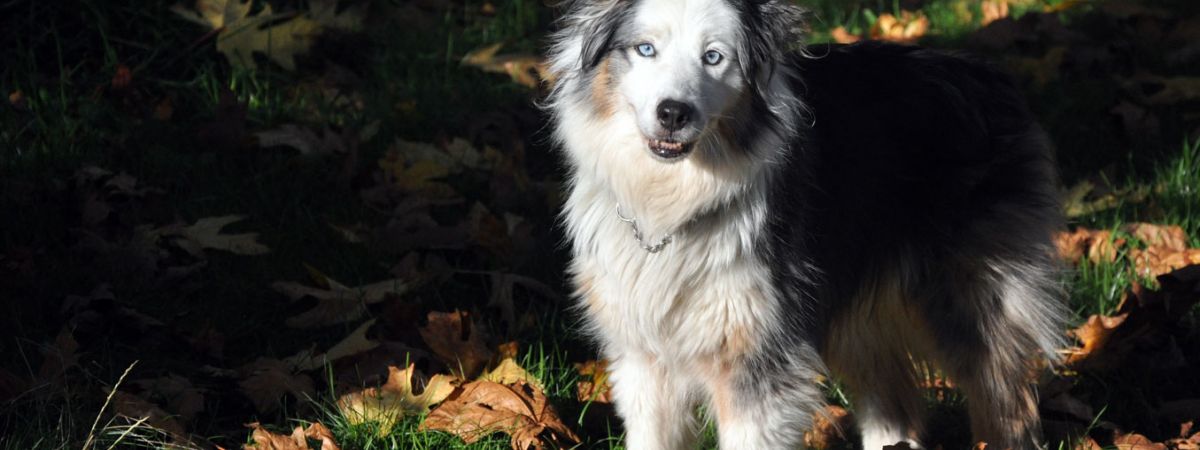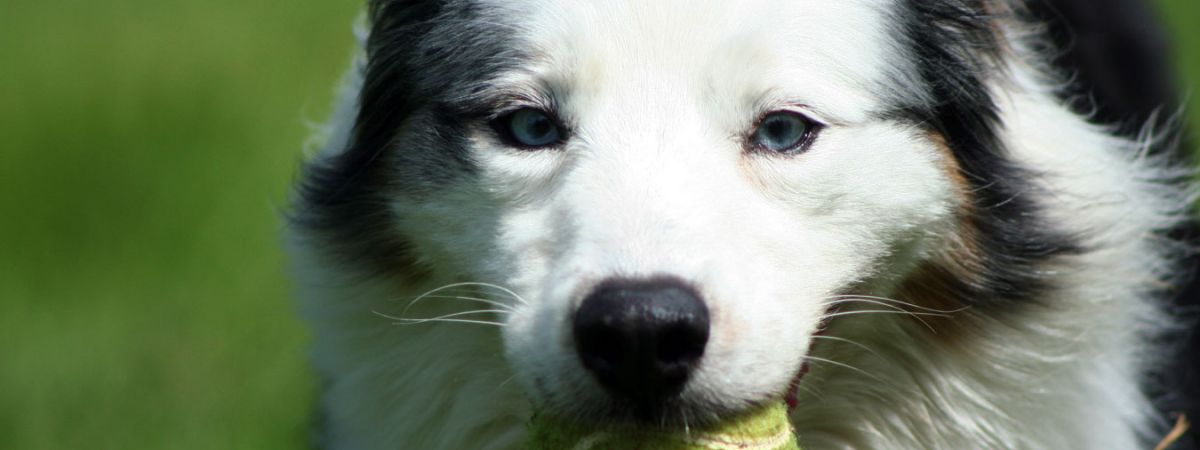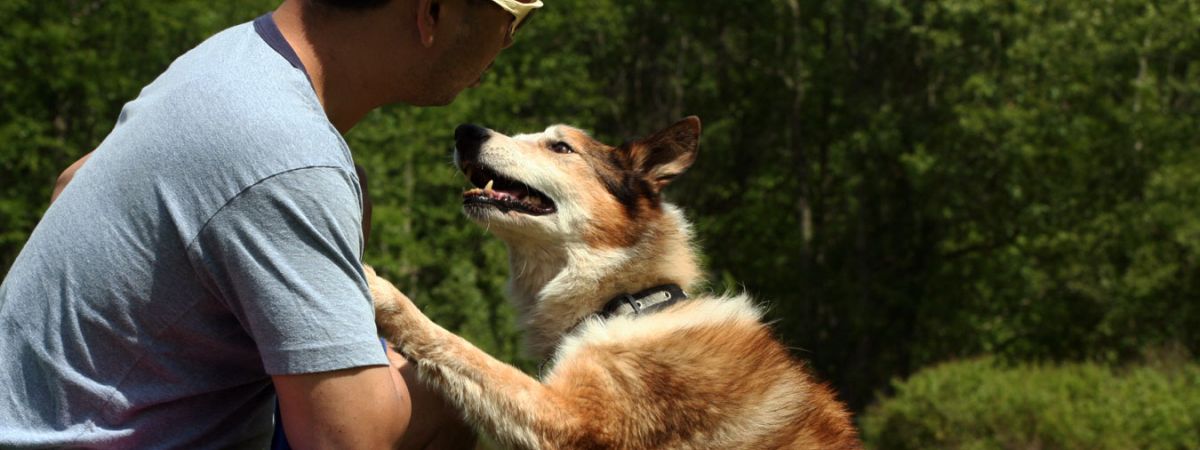Submissive or Excitement Wetting
Some dogs or puppies have a problem wherein they accidentally tinkle a bit when they get excited or are feeling submissive. This can be very annoying when visitors arrive and get their shoes sprinkled on, or at the very least, you need to clean the floor.
Both submissive and excitement urinating are not actually house training problems. They are behavioural issues. The dog does not even realize there’s anything coming out. Generally, these problems are more common in puppies, and in dogs owned by people who are at home all day. Both of those groups of dogs tend to have less bladder control in general, due to their young age or overly frequent walking.
No matter what age or breed, and no matter what type of schedule you keep, the first step is to follow a diligent house training regimen, and confine your dog on a regular basis (even if you’re at home all day) so your dog can build up muscle control.
In addition, obedience training will be paramount. For submissive dogs or puppies, obedience training will be a confidence builder. For excited dogs, training will help your pet to behave more calmly during stimulating situations.
Work with your dog on the basic obedience commands of “heel,” “sit,” “down,” “stay,” and “come.” Also accomplish basic manners: no jumping, pulling, bolting out the door, play biting, etc.
Once your pet has learned the commands, you can use the sit/stay during exciting (or what he perceives as intimidating) situations. Generally, a dog or puppy who is fully in a “sit” position, cannot also urinate.
Sometimes it can also help to encourage your dog or puppy to hold a toy in his mouth during exciting times. For some pets, it can almost serve as a pacifier to help them draw upon their willpower to behave more calmly.
Keep in mind that dogs communicate through body language and eye contact. When you or others greet your dog, do so by facing him with the side of your body, rather than looming above him from the front, which could intimidate some pets.
Discourage visitors from using excited voices when greeting your pet, and you do the same. In fact, it may be best to ignore your dog or puppy for the first few minutes until he gets the sillies out and relaxes.
Last but not least, avoid yelling loudly at your dog. Shouting can cause some dogs to become even more submissive, increasing the problem. Instead, use a calm voice and appropriate methods to teach your dog right from wrong.
With some confidence building, obedience training, and muscle control, your dog can soon master the art of greeting without tinkling!

